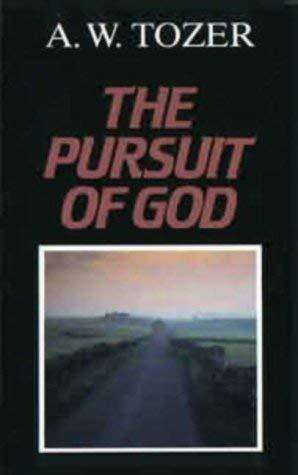
The Pursuit of God - A.W. Tozer
Check my rate
| Main centres: | 1-3 business days |
| Regional areas: | 3-4 business days |
| Remote areas: | 3-5 business days |

| Main centres: | 1-3 business days |
| Regional areas: | 3-4 business days |
| Remote areas: | 3-5 business days |
The Pursuit of God by A.W. Tozer is a spiritual classic that has stirred the hearts of believers for generations. Written during a single overnight train ride in 1948, the book reflects Tozers deep yearning for a church that seeks not just knowledge about God, but a living, breathing relationship with Him. With its passionate tone, poetic language, and piercing insight, this work has become essential reading for Christians desiring spiritual depth and intimacy with the Lord.
Tozer challenges the modern churchs tendency toward cold orthodoxy and shallow religion. He insists that knowing God is not reserved for mystics or theologians but is available to every believer who longs for Him. This is a call not just to learn about God but to encounter Him personally. For Tozer, the Christian life is not a set of beliefs but a living walk with a real and present God.
Throughout the books ten chapters, Tozer explores themes such as the importance of spiritual hunger, the need for a surrendered will, the removal of internal idols, and the simplicity of faith that comes from communion with God. Each chapter serves as both theological instruction and devotional meditation, guiding readers toward a posture of humility, awe, and love for their Creator.
Tozer writes with an urgency born from personal conviction. He exposes the spiritual complacency that can settle into the church and calls readers to return to the heart of worship. His language is rich, sometimes old-fashioned, but always deeply reverentreminding readers that God is not a concept to be studied, but a person to be loved and pursued.
Theologically, The Pursuit of God aligns most closely with Reformed spirituality in its view of Gods sovereignty, holiness, and transcendence, though Tozer was not dogmatic in any one system. He has been described as leaning toward progressive sanctification, with emphasis on experiential holiness. The book strongly supports complementarianism by assumption, reflecting Tozers traditional evangelical context, though gender roles are not a central focus.
This book is not for passive readingit invites self-examination, prayer, and response. It is ideal for individual study, devotional reflection, or even small group discussion for those seeking to rekindle their spiritual passion. The Pursuit of God remains a timeless summons to the soul: to seek God not for what He gives, but for who He is.